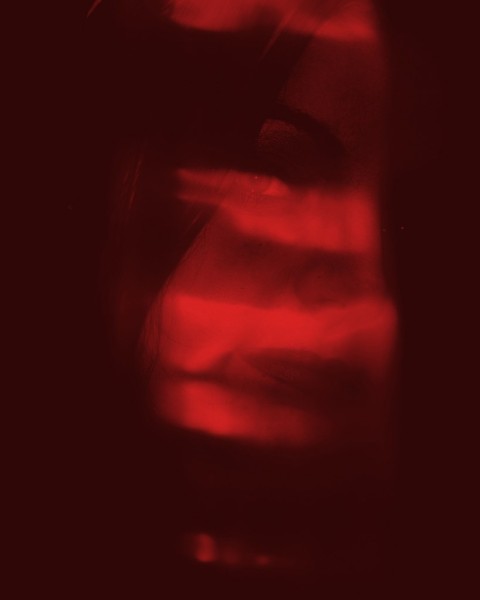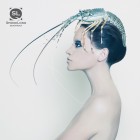I was sneaking three moonlit fingers of bourbon into a jam jar when I saw your heart on the front porch, gazing out over the city. Only minutes earlier you and I had been upstairs making what I still thought was love. The same guttural grunting as before, the same slick, the same smile, the same sleep. But he’d been down here all along, gooshy arteries clutching the railing, longing.
I’d been lying to myself, but as long ago as February I’d been hearing two sets of breathing on your side of the bed—one steady, deep, if prone to apnea, and the other troubled and nasal, small but rising in volume night by night. You’d complained of a tightness in your chest. I told you it was anxiety. You told me you had a family history of heart problems. This isn’t what I thought you meant.
I put a hand on his right atrium to let him know I was there, and my fingers left an impression in the warm flesh, like in memory foam. I asked your heart if we could talk. He didn’t say anything, but made space for me on the railing. As I moved to join him, I crushed something underfoot. It felt visceral. For a moment I pictured your heart’s tender vena cava and I yelped, stepping back. It was only a ginkgo berry—the porch was covered in the small yellow globes. Another squished as I moved away from the first, and the stink of bile rose around us. I put my hand back on your heart, an apology.
More berries popped and putrefied around us as we talked. He didn’t have the answers, but he was more honest than you. The crux of the matter was that I had chosen you, but your heart didn’t think love was a choice. I told him it could be, he could choose to get caught up in it, be consumed by me. He wouldn’t, and your heart was as sorry as I was.
I thought I might cry, but instead I just felt nauseous, and the rancid foot smell of the ginkgo wasn’t helping—we had smashed most of them against the wooden slats of the porch, pacing and rehashing. You heart refilled my jam jar, got a glass for himself. At one point he asked where my heart was, why he wasn’t having this conversation with her. She was upstairs, I answered angrily, in bed with your body. But even as the words left my mouth, I knew they weren’t true; I could feel my heart beating right there in my chest.
Your heart sleeps on the couch most nights now. Once last week he slept with us; I clutched his warm little water-bottle body to my chest. I’ve sometimes sleepwalked, but I’d never sleep-eaten before. I swear I didn’t mean it, even as I dipped my head and bit into the sweet rind of pericardium.

Notes from Guest Reader Karen Craigo
We make a lot of claims about the heart. It’s on fire; we eat it out; it breaks. Sometimes we set it on things, like we might an attack dog. Even in song, it goes through some shit: We build a fortress around it, we put another nail in it, we can’t stop draggin’ it around.
One begins to believe there’s not a lot more we can do with the heart. But then along comes Emily Jane Young with this story, “Parasomnia,” a word that refers to the weird things we do when we’re sleeping (like sleepwalking, sleep talking, sleep paralysis, and even sleep sex).
I did not expect to see the heart at the start of Young’s story as it stood on the front porch and looked out over the city—“But he’d been out here all along, gooshy arteries clutching the railing, longing.”
I am completely on board for writers who can hold a lens up to the tired old world and show it in a way that’s entirely new. When a writer does this with the personified heart, and does so with such a deft touch that I can smell the weird vomit smell of crushed ginkgo berries, I’m all in to see what happens next.


 The core workshop of SmokeLong Fitness is all in writing, so you can take part from anywhere at anytime. We are excited about creating a supportive, consistent and structured environment for flash writers to work on their craft in a community. We are thrilled and proud to say that our workshop participants have won, placed, or been listed in every major flash competition. Community works.
The core workshop of SmokeLong Fitness is all in writing, so you can take part from anywhere at anytime. We are excited about creating a supportive, consistent and structured environment for flash writers to work on their craft in a community. We are thrilled and proud to say that our workshop participants have won, placed, or been listed in every major flash competition. Community works.